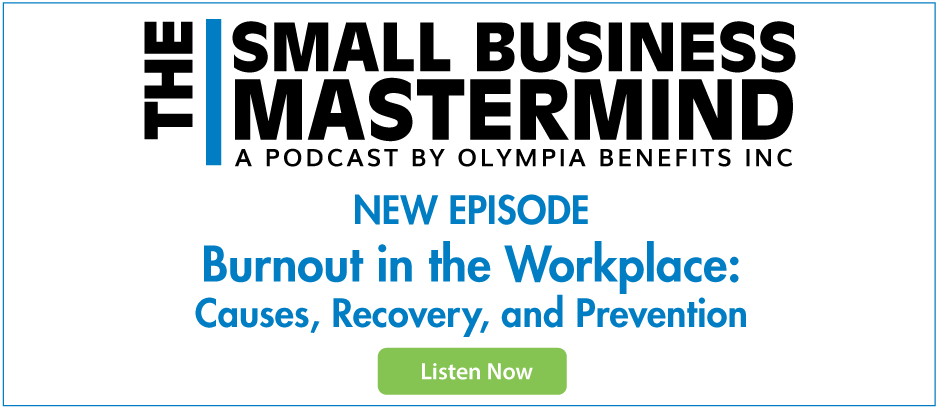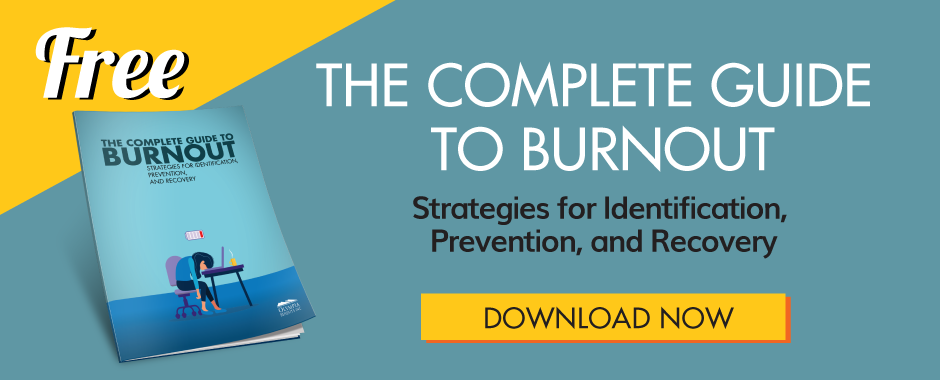Burnout is caused by experiencing a period of prolonged and excessive stress. It creates a state of emotional, physical, and mental exhaustion that can leave you feeling overwhelmed and emotionally drained. In this article, we will explore 15 frequently asked questions about burnout causes, treatments, and prevention strategies.
When is the last time you asked someone how they are doing and they responded with something other than "busy!"? When is the last time you responded with something else?
"Busy" has become our default answer, and for good reason. Our society places value on those who are cramming their days full, glorifying their "hustle" and focus on work above all else. Couple this mindset with expensive property taxes, low wages, and pressure to provide for your family, and the concept of a "work-life" balance is out the window.
We are piling onto ourselves until we simply can't handle it anymore. Sleeping in, eating well, and exercise become luxuries we can no longer afford.
That's when it happens: Burnout. The consequence of our busy lives.
Burnout has become so prevalent that it is recognized by the World Health Organization as a mental health issue. Classified as an occupational phenomenon, burnout is the result of exposure to chronic workplace stress.
Below, find 15 FAQs about burnout to help you understand the causes, identify the symptoms, and create prevention strategies for both yourself and your team.
Important note: Burnout is a mental health issue with no one-size-fits-all solution. While the stress management techniques in this article have been shown to have a positive effect on reducing stress, they are for guidance only. Readers experiencing symptoms of burnout should consult the advice of a qualified health professional. Readers are encouraged to consult a health professional before making any major changes in diet or levels of exercise.
15 FAQs About Burnout:
-
What Is Burnout?
Burnout is a state of emotional, physical, and mental exhaustion caused by prolonged exposure to excessive stress. The World Health Organization classifies burnout as an "occupational phenomenon," meaning it results from chronic workplace stress.
- What Causes Burnout?
When we don't get a chance to properly rest and recuperate from a stressful event we expose ourselves to a variety of disorders and illnesses, including: hormonal disorders, muscle tension and aches, diabetes, depression, irritability, and insomnia (to name a few). Continuous stress on our body over a prolonged period of time disturbs our endocrine system, which is responsible for regulating our "fight or flight" response. Once disturbed, our endocrine system begins to take over brain functions that would be considered "non essential" in an emergency situation, like: sleep, digestion, and the reproductive system. In contrast, it amplifies those we would need in an emergency, including muscular and cardiovascular functions. At this point, we begin experiencing burnout, and if we don't make lifestyle changes we head down the road to overwhelming emotional, physical, and mental exhaustion.
- Is Burnout the Same as Stress?
No, while burnout is the result of excessive and prolonged stress, it isn't the same as experiencing too much stress.
Stress is a part of normal, everyday life, and is typically experienced in short bursts in response to specific events. Stress can help you perform better on certain tasks in the short-term, and by and large involves a feeling of "too much." Feeling like there is too much pressure, too much to do, and so on. You may experience stress several days in a row, particularly if you're working on a difficult project, but stress will typically lessen or disappear entirely once the project is complete.
Symptoms of stress may include: over-engagement, over-reactive emotions, hyperactivity, loss of energy, anxiety, and physical damage to your body.
Burnout is experienced when we are exposed to excessive and prolonged stress and develop a feeling of "not having enough." We don't have enough motivation, energy, engagement in our work, and so on. While stress can have you feeling like you're drowning, burnout leaves you feeling all dried up. And, unlike stress, it isn't always easy to notice burnout happening.
Symptoms of burnout may include: exhaustion (both physically and mentally), disengagement, overwhelming dread, loss of motivation, blunted emotions, depersonalization, a feeling of emptiness, depression, and emotional damage.
- What Are Some Examples of Situations that Cause Burnout?
Some causes may include: unclear goals or job expectations, working within a dysfunctional team, having an excessive workload, getting a lack of recognition, having little support, or working a role that doesn't align with your ambitions.
- When Does Burnout Happen?
Burnout can happen when you experience a period of unrelenting stress linked to workplace expectations, real or perceived. When we expect too much of ourselves, when we don't believe we can do something "perfectly", feel incompetent, inadequate, or under appreciated for our efforts it negatively affects our relationship with our work and our health. Couple this with unreasonable demands from management and a job role that isn't good fit and you've got a recipe for burnout.
- Does Burnout Only Happen During Bad Times?
No, burnout is not reserved for the bad times. It has happened to many business owners while their company performance was at its peak. Whether you're experiencing prolonged and excessive stress because your business or company isn't doing well, or because it is doing so well that you're afraid of slipping up, your body and mind lack rest.
- What Are the Symptoms of Burnout?
Some common symptoms reported with burnout include: Exhaustion (both physically and mentally), disengagement, overwhelming dread, loss of motivation, blunted emotions, depersonalization, a feeling of emptiness, depression, and emotional damage.
- How Is Burnout Identified?
If every day is starting to feel like a bad day and you've lost the ability to care about your work or home life, you may be experiencing burnout. Exhaustion is one of the defining symptoms of burnout, as is feeling like your day to day work has become mind-numbingly dull. Consulting a health professional is the best way to identify if you're experiencing burnout.
- Does Burnout Have Stages?
Yes, it is important to know that burnout has stages that range from the early symptoms, to those which require medical attention.
- What Are the Stages of Burnout?
1. Compulsion to prove oneself
2. Working hard without being able to switch off
3. Neglecting basic needs
4. Displacement of conflicts
5. Changing values
6. Denial of emerging problems
7. Withdrawal
8. Odd behavioural changes
9. Depersonalization
10. Inner emptiness
11. Depression
12. Burnout syndrome - includes mental and physical collapse, requires medical attention
- Is Burnout Recognized as a Mental Illness?
Burnout is not considered a mental illness, but it is recognized as a mental health issue. According to the World Health Organization's latest revision of the International Classification of Diseases, burnout is an occupational phenomenon.
- How Do You Spot Burnout in Employees?
Burnout can be chronic in nature and cause employees' performance to suffer. Knowing how to spot the early stages of burnout in your team will help you be proactive in addressing the areas where they need help. If you notice an employee has become uncharacteristically disengaged in their work and seems exhausted it might be time to start a conversation. Suddenly making a lot of mistakes in their work, acting distant, being increasingly absent, showing heightened sensitivity, and extreme thinking are also signs of burnout to look out for.
- How Do You Support an Employee Experiencing Burnout?
First, you want to figure out why they are experiencing burnout. It might be that they are working too long of hours, trying to be the "perfect" employee, or are working on tasks they don't feel they have the skills and abilities to complete. It could also be that the expectations being placed on them are unrealistic. Whatever the case may be, you'll want to address their concerns with compassion and help them find solutions. If the employee is working extra hours because they feel the pressure to be seen as a "hard worker", you could set a goal cutoff time for them to end their day and encourage them to take their breaks. You might also want to revisit and adjust your expectations for their role. They may have more on their plate than you know. Revisiting your expectations can help relieve pressure.
There is no one size fits all approach to take when approaching an employee experiencing burnout, but checking in with your team members on a regular basis can help you spot burnout signs early and turn things around.
-
How Do You Treat Burnout?
Burnout is all about "not enough:" not having enough energy, not caring, or not seeing any hope. To deal with burnout, re-framing this mindset by allowing your mind and body to rest is important. You can do this in several ways:
1. Set aside time to relax and let yourself feel bored - this allows your mind to rest
2. Reach out to those you're closest to and open up about how you're feeling
3. Work on your friendships with your coworkers to give yourself something to look forward to at work
4. Limit contact with negative people
5. Join a community group or volunteer
6. Re-frame how you look at your work - can you find some value in it?
7. Focus on your work-life balance
8. Use your vacation time and allow yourself to disconnect
9. Set boundaries including work cut-off times and rules around taking work calls when at home
10. Do something creative that is unrelated to work
11. Take time off from social media
12. Get plenty of sleep
13. Exercise regularly - 30 minutes per day
14. Practice mindfulness and meditation
15. Eat well - minimize sugar, caffeine, trans fats, and processed foods
16. If you're a smoker, consider quitting as nicotine is a powerful stimulant
17. Drink in moderation or eliminate alcohol altogether
18. Seek treatment from a health professional
-
How Do You Prevent Burnout?
Being mindful of the stress your job is putting on you is an important place to start. Look for areas in your life where you aren't taking care of yourself. Maybe you're not giving yourself enough time to get a good night's sleep? Perhaps you've stopped going to the gym, or doing a hobby you love? Are you seeing friends, or talking to your family about how you're feeling?
Once you identify areas that need improvement you need to find the time to do something for yourself every day (even if it is small, like going for a 10 minute walk at lunch). Having things you enjoy doing outside of work will not only help you bring down your stress levels, but can help you find joy in your job again.
Want to learn more? Listen to our podcast episode about Burnout in the Workplace, click the banner below.

Click the banner below to learn more about burnout and to get your copy of our Stress vs. Burnout infographic.

Sources:
https://atmanco.com/blog/hcm/signs-of-employee-burnout-you-are-missing/
https://www.helpguide.org/articles/stress/burnout-prevention-and-recovery.htm
https://www.themuse.com/advice/how-to-tell-if-your-team-is-burnt-outand-what-to-do-about-it
https://www.workplacestrategiesformentalhealth.com/managing-workplace-issues/burnout-response
https://www.mayoclinic.org/healthy-lifestyle/adult-health/in-depth/burnout/art-20046642
Related Content:
Burnout in the Workplace: Causes, Recovery, and Prevention (Podcast)
How to Spot the Employee Burnout Signs Companies Miss
13 Burnout Recovery Strategies You'll Want to Try
How to Prevent Burnout at Work Like a Pro
What Does Burnout Feel Like?
6 Things I Learned About Burnout from Interviewing Experts